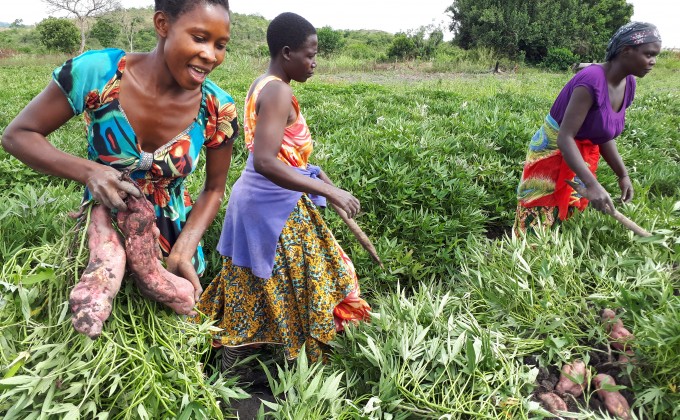By Nadia Lampkin, Volunteer Research and Policy Analyst, Uniterra program
58% and 45%. These are the staggering rates of anemia in children under 5 and women between the ages of 15 and 49 in Tanzania, respectively.
The irony is that Tanzania’s agricultural production is both prolific and extremely diverse. But 15-40% of crops are lost post-harvest, leaving thousands of individuals suffering from hunger, malnutrition and anemia. Tanzania’s hunger problem is not due to a lack of food production but, in part, obstacles in food management.
My name is Nadia Lampkin and I’m a long-term Uniterra Volunteer in Tanzania based with the Agricultural Non State Actors Forum (ANSAF) in Dar es Salaam as a Research and Policy Analyst. A major part of my role over the past 6 months has been to work with Program Officer Rehema Msamy on the Communications, Policy and Advocacy component of the Fast Track Project.
The Fast Track Project is implemented in several different regions of Tanzania. It aims to improve the nutritional condition of children through the dissemination of improved varieties of sweet potatoes. At the beginning of the project, Rehema communicated to me that while she was well experienced in communications, she wanted to improve her policy analysis skills so that she could better advocate to the government to increase the budget allocation towards nutrition. I told Rehema, “Become the expert and your knowledge will speak for itself”.
The two of us worked together extensively researching malnutrition and hunger in Tanzania. We uncovered how malnutrition is just as much a health issue as it is economic. We found an important statistic: 2.7 million Tanzanian children under the age of 5 are stunted. We wrote a policy brief centered on this figure, arguing that these children represent a staggering loss of human and economic potential.
Not only do issues of hunger place an enormous burden on a country’s health sector, but they also lead to a significant loss in income. If the nutrition situation does not improve by 2025, Tanzania’s estimated economic losses will total 20 billion USD. For a country to prevent this loss of economic gain, it must invest in its food management system and nutrition programs today.
I trained Rehema on the importance of clear and concise policy briefs with supporting statistics. These new technical skills have provided her with a solid base to support her passion and determination to fight for increasing national prioritization of nutrition.
While advocacy takes time, Rehema has witnessed some notable results. Through district level dialogues, nine out of 13 local government authorities have committed to increasing their budget for nutritional programs, and two Members of Parliament have become ambassadors for nutrition. They are continuing to push for nutrition to be included in national and local budgets.
By supporting Rehema to look at policy advocacy through the lens of research and expertise rather than politics, she is having a greater impact at the local and national levels. In supporting ANSAF I have witnessed firsthand that while policy change is always a process, through programs like Uniterra, aspiring leaders like Rehema are receiving the tools enabling them to improve the living conditions of youth and women around them.
Proyectos
Presencia
El CECI
Implicarse
Informarse
Donar
Contáctenos
Enlaces externos

